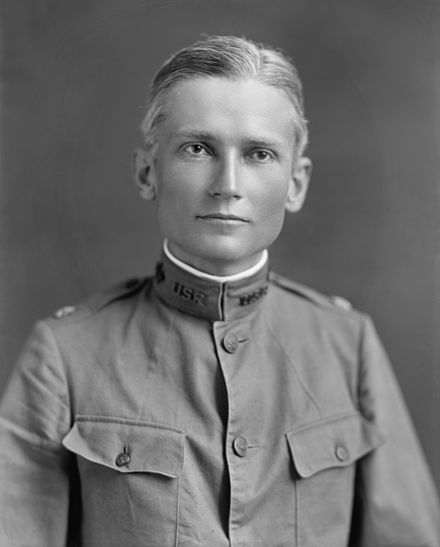Explorer, US Senator.US Army Aviator. He was born in Honolulu, Hawaii. His father, whom he was named after, was a well-known missionary who instilled a profound sense of adventure in his son. He was educated at Harvard, Yale and the University of California, earning a PhD in South American history. In 1900, he married Alfreda Mitchell, heir to the Tiffany fortune. With his wife's wealth, he was able to subsidize his later explorations. In 1906, he traveled to South America, attempting to retrace the route taken in 1819 by Simon Bolivar from Venezuela to Colombia. Two years later, he followed an old Spanish trade route from Buenos Aires across the Andes Mountains to Lima, Peru. His greatest discovery came in 1911 while leading the Yale Peruvian Expedition. He was determined to find Vilcabamba, the storied "lost city of the Incas." There were few clues regarding the location of the city, and traveling the Andes was very dangerous. However, on July 24, 1911, he and his guide discovered the ruins of Machu Picchu. He returned the following year on behalf of Yale and the National Geographic Society, and spent three years excavating the site. In 1917, he earned his pilot's wings and became chief of the Air Personnel Division of the Air Service in Washington D.C. Rising to Lieutenant Colonel, he commanded the Aviation Instruction Center in France during World War I. He taught history at Harvard and Princeton, but spent most of his teaching career at Yale. In 1922, he was elected lieutenant governor of Connecticut. He became governor in 1924, but served just two days before being chosen to fill a vacant seat in the United States Senate. He was reelected to a full term in the Senate in 1926, but lost reelection in 1932, which ended his political career. After he left the Senate he devoted himself to his business interests. In 1951, President Harry S. Truman appointed him to the Civil Service Loyalty Review Board, which investigated cases of suspected subversion in the state department. He died in Washington D.C.
Source: Find a Grave

PRIVATE CITIZENS SUPPORTING AMERICA'S HERITAGE
American
War Memorials Overseas, Inc.
War Memorials Overseas, Inc.
Bingham Hiram Bingham III
Name:
Hiram Bingham III Bingham
Rank:
Colonel
Serial Number:
Unit:
US Army Air Service
Date of Death:
1956-06-06
State:
Conneticut
Cemetery:
Arlington National Cemetery Arlington, Arlington County, Virginia
Plot:
Section 1, Grave 357-B
Row:
Grave:
Decoration:
Comments:
